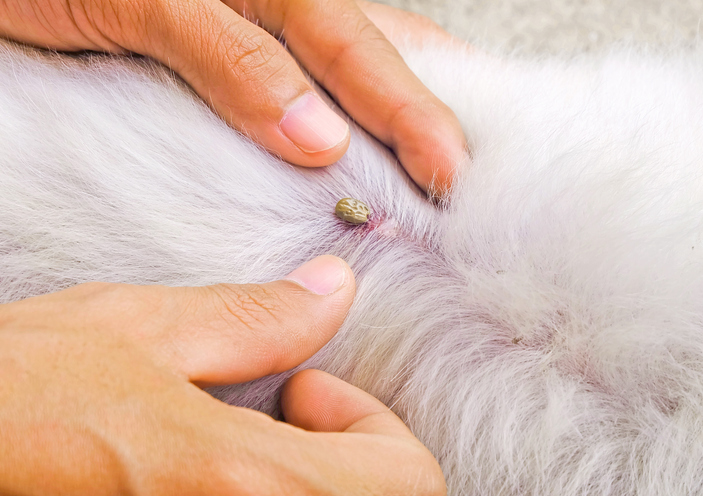Can Fleas Live On Humans?
Can Fleas Live on Humans?
Fleas are known for infesting pets, but can they live on humans? While fleas can bite humans, they do not live on them. Human bodies, lacking the extensive hair of animals, are not ideal environments for fleas to reside and breed. Flea bites on humans are usually temporary and more of a discomfort than a sign of infestation.
The Flea: A Tiny Pest with a Big Impact
Fleas are a common concern for pet owners, but the question often arises: Can fleas live on humans? This question is crucial as it affects not only our pets but also our personal health and comfort. Fleas are tiny, agile insects, known for their ability to jump incredible distances relative to their size. They are parasites, feeding on the blood of their hosts, which are typically animals. However, their interaction with humans is a topic of interest and concern.
Fleas are small, wingless insects that feed on the blood of mammals and birds. They are known for their incredible jumping abilities. While they prefer animals like dogs and cats, fleas can and sometimes do bite humans. However, they don’t live on human bodies in the same way they inhabit pets.

Save $50
on your first recurring service today with code GET50
The Lifecycle of a Flea: Understanding the Enemy
Understanding the lifecycle of a flea is key to effective control and prevention. Fleas go through four main stages in their life cycle: egg, larva, pupa, and adult. Each stage has unique characteristics and challenges in terms of control.

GET A PERSONALIZED QUOTE
To protect your home from pests, click here for a free pest control estimate. Our Orkin Pros will create a personalized pest treatment plan for your home or business
or Call (866) 249-0292
- Egg Stage – The lifecycle begins when an adult female flea lays eggs after feeding on a host’s blood. These eggs are tiny, white, and hard to see. They are often laid on the host but can fall off into the environment, spreading the infestation to areas where the host frequents, like bedding or carpets.
- Larva Stage – Flea eggs hatch into larvae, which avoid light and move deeper into carpets, cracks, and under furniture. They feed on organic debris, including adult flea feces (dried blood), which is crucial for their development. This stage can last several days to weeks, depending on environmental conditions.
- Pupa Stage – The larvae then spin silk-like cocoons, entering the pupa stage. This is the most resilient stage. Pupae can remain dormant for weeks or even months, waiting for the right conditions (like warmth and carbon dioxide from a potential host) to emerge as adults.
- Adult Stage – The final stage is the adult flea, which emerges from the pupa to jump onto a host. Adult fleas must feed on blood to reproduce. They can live several weeks to several months, continuously laying eggs throughout their lifespan.
Breaking the Cycle
Breaking the flea lifecycle requires targeted treatments at different stages. Regular cleaning, vacuuming, and treating pets can help control the egg and larva stages. Professional pest control services, like those offered by Orkin, are often necessary to effectively target all stages, especially the resilient pupa.
Human Flea Bites: Uncomfortable but Temporary
Flea bites on humans are more common than you might think. These tiny pests, while preferring pets, will not hesitate to bite humans when their preferred hosts are not available. Understanding the nature of these bites is crucial in identifying and addressing a flea problem.
Flea bites on humans typically appear as small, red, raised dots. They are often grouped in clusters or lines, usually around the ankles and lower legs. These bites are notoriously itchy and can cause discomfort. Unlike other insect bites, flea bites remain small and do not swell significantly.
Everyone reacts differently to flea bites. Some may experience minor irritation, while others might have more severe reactions, especially if they are allergic to flea saliva. This can lead to intense itching, swelling, and even hives or rashes. Scratching the bites can lead to secondary infections, which is why it’s important to resist the urge to scratch and to keep the area clean.
Temporary Nature of Flea Bites
Fortunately, flea bites on humans are temporary. They do not indicate that fleas are living on your body. Fleas cannot survive on human skin due to the lack of adequate hair for them to hide and breed. The discomfort caused by flea bites usually subsides within a few days to a week.
To alleviate the itching and discomfort caused by flea bites, over-the-counter anti-itch creams and antihistamines can be effective. Keeping the affected area clean and avoiding scratching helps prevent infection. If a severe allergic reaction occurs, it’s important to seek medical attention.
While there are home remedies for fleas, they are often less effective than professional treatments. Vacuuming regularly and washing bedding can help, but for complete control, professional help is usually needed.
Orkin’s Approach to Flea Control
At Orkin, we understand the nuisance fleas can be. Our approach to flea control involves:
- Inspection – Identifying the extent of the infestation.
- Treatment – Using safe and effective methods to eliminate fleas at every life stage.
- Prevention – Offering advice on how to prevent future infestations.
Why Choose Orkin for Flea Control?
Orkin has years of experience and expertise in pest control. Our methods are safe for your family and pets but tough on fleas. We offer tailored solutions to meet your specific needs.
If you’re dealing with fleas, don’t wait. Call Orkin today for a consultation. Our experts are ready to help you get rid of these pests for good.
Frequently Asked Questions
Can fleas live on human skin?
No, fleas do not live on human skin. They may bite humans but cannot survive on our bodies long-term.
What do fleas prefer as hosts?
Fleas prefer animals with thicker fur like cats and dogs as their hosts.
How do flea bites on humans look?
Flea bites on humans are small, red, and often appear in clusters or lines, primarily around the ankles and legs.
Are flea bites dangerous to humans?
Flea bites are not usually dangerous but can cause discomfort and, in rare cases, allergic reactions.
Can fleas transmit diseases to humans?
Fleas can carry diseases, but transmission to humans is relatively rare.
How can I tell if I have fleas in my home?
Signs of fleas in your home include pet scratching, visible fleas on pets, and flea bites on humans.
What is the lifecycle of a flea?
Fleas go through four stages: egg, larva, pupa, and adult.
Can cleaning help control fleas?
Regular cleaning and vacuuming can help control fleas, especially in the egg and larva stages.
Conclusion
While fleas are capable of biting humans, they do not live on us in the same way they inhabit our pets. Human flea bites, though uncomfortable, are a temporary issue and more of an annoyance than a health hazard. Understanding the lifecycle of fleas and their behavior is key to effective control and prevention. Regular cleaning and maintenance can help mitigate the risk of flea infestations in your home.
However, in cases of significant infestation, professional pest control services, like those provided by Orkin, are essential. Orkin’s expertise in dealing with fleas ensures that your home is not only treated for the current problem but also protected against future infestations. Remember, while fleas can be a nuisance, with the right knowledge and resources, they are a problem that can be effectively managed. Trust in professional services like Orkin to keep your home safe and comfortable, free from the worry of fleas.

FIND YOUR LOCAL BRANCH
To protect your home from pests, click here for a free pest control estimate. Our Orkin Pros will create a personalized pest treatment plan for your home or business
or Call (866) 249-0292

